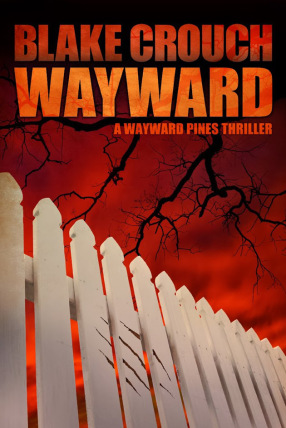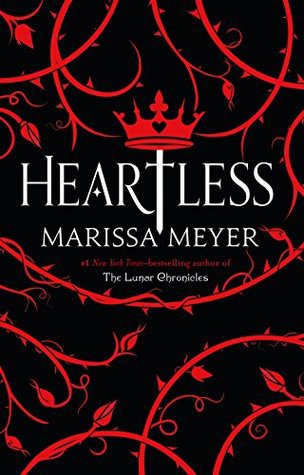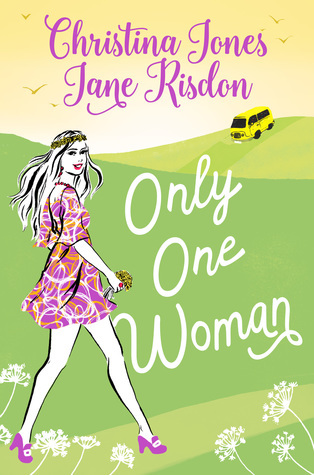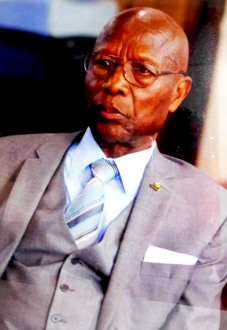There was a trend in Hollywood for a little while – about ten years ago – to approach trilogies in an odd fashion. The idea was to release a mostly standalone film – think The Matrix, or Pirates of the Caribbean – and if it did well, to turn it into a trilogy by filming the next two entries simultaneously. The result was always slightly odd-feeling, with a solid standalone film and then one long story split into halves, complete with the requisite cliffhanger. And more often than not, there was a sense of the unnecessary about those sequels – that however fun they might or might not be, they were less about telling the “whole” story, and more about extending the world of the original not once, but twice.
I mention all of this here because Blake Crouch’s Wayward Pines trilogy feels so much like it’s following in this model’s footsteps – down to the fact that none of it entirely feels needed. The original novel in the series, Pines, was a blast – a pulpy, twisty mystery about a Secret Service agent who ends up in a strange small town, and can’t leave. And by the time the book laid its cards on the table, things had escalated wildly, leading to a payoff and reveal that pushed way, way beyond what you ever would have guessed. It was a lot of fun, and if it had its flaws – some middling writing, some thin characters – the intriguing story and pulpy fun made up for it. (My original review is here, if you’re interested.)
But when I discovered that Crouch had turned the original book into a trilogy, I was a bit confused. Pines pretty well wraps up its story; while there’s more of this world you could explore, really, things are settled by the end. Our questions are answered. Our hero has made the important choices, and all is settled.
 But, to borrow from The Royal Tenenbaums, what this book presupposes is, what if it wasn’t?
But, to borrow from The Royal Tenenbaums, what this book presupposes is, what if it wasn’t?
Wayward, the second volume in the series, deals with the ramifications of the big reveal in the first book, particularly as they affect our main character. If you learned, as he did, something that changed how you saw the world, how would you deal with it? Would you help to keep that secret, or would you fight for the truth? Crouch anchors his book in this internal debate, letting Ethan slowly realize just what his role in this town will entail – and what it will mean that he has to do.
It’s a compelling enough idea to keep the story going, and as Crouch fills in some intriguing details around the edges – particularly as it regards the growing amount of resistance that’s coming together in the town – there starts to be a feeling that this sequel, while not quite necessary, at least intrigues in how it expands on the world Crouch has created. What’s more, it builds to a spectacular climax, one that pays off your patience beautifully – it’s big and showy, but satisfying, and makes you realize what Crouch’s big game is for the sequels. And the cliffhanger he sets up? Gleefully nasty and taunting.
Wayward, then, does what a good sequel should do, and what the second entry in these trilogies tries to do – it expands on the world, it goes deeper, and it tries to set up the big picture of the series. And if it still feels tacked on, it’s a fun sort of tacked on.
Now, if only The Last Town could stick the landing.
 In many ways, it’s in The Last Town that my earlier Matrix comparison hits its peak. Like The Matrix Reloaded, Wayward runs with the premise of the first book, taking it to logical extremes and exploring what it would all really mean. And like The Matrix Revolutions did, the last book ignores most of those interesting ideas and plans in favor of an overlong action sequence where a ton of characters die, most of whom we don’t really know or care about.
In many ways, it’s in The Last Town that my earlier Matrix comparison hits its peak. Like The Matrix Reloaded, Wayward runs with the premise of the first book, taking it to logical extremes and exploring what it would all really mean. And like The Matrix Revolutions did, the last book ignores most of those interesting ideas and plans in favor of an overlong action sequence where a ton of characters die, most of whom we don’t really know or care about.
That’s not to say that the action isn’t exciting; indeed, if there’s one thing Crouch does well, it’s letting his inner horror writer loose as he does here, turning the attack into a visceral, unsettling nightmare. More than that, Crouch starts expanding his point of view, showing what’s going on all over the town, and the result is genuinely gripping, exciting stuff – it’s anarchic, terrifying, and violent. It also, though, ultimately feels a bit excessive and pointless, losing track of the intriguing story and the characters that we’re anchored with, and tossing out a lot of cannon fodder, hoping that we’re more invested in their fate than we are.
By the time we get past the action sequence, Crouch feels as though he could be setting up some interesting ideas – what it means to be a leader in dire circumstances, the harsh choices we’re forced to make, things like that. Instead, his choice for ending is an odd one, feeling both right for the material and simultaneously deeply unsatisfying. It doesn’t feel like a bad choice for the characters, per se, but it does feel like a whimper of an ending to the series. (And that’s not counting the cheesy, very brief epilogue, which could – and should – be easily ignored and skipped over.) And when the ending of a series is a letdown, it has a way of tainting the rest of the series (and once again, the Matrix comparison comes in, doesn’t it?)
It all ends up feeling like a missed opportunity, and while it’s clear that Crouch had some novel ideas about how to expand on Pines, you can’t help but feel that the original book would have been better as a standalone. Sure, the climax and payoff of Wayward is great, but when you don’t have a way to stick the cliffhanger or the ending, you end up feeling as though it retroactively shouldn’t have been done. In short? Stick with Pines as a standalone. If you’re really curious what happens “next”, you can read these…but be prepared for a bit of a letdown by where it all goes.
Wayward: *** ½
The Last Town: **
Advertisements Share this:





